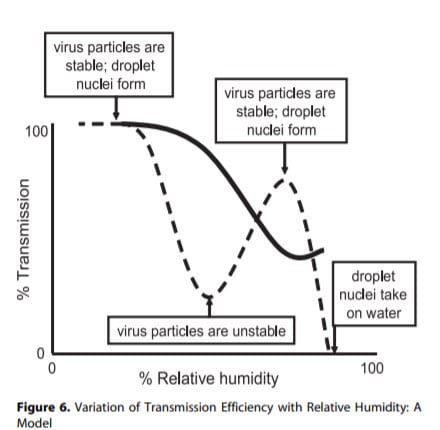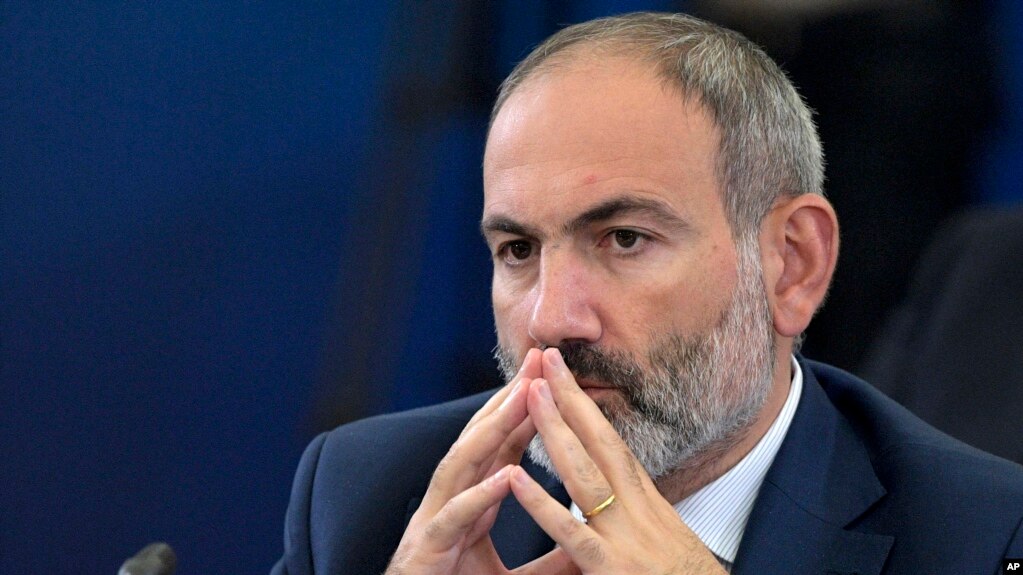
Dutch pollster and data-analyst Maurice de Hond exposed a relationship between the spread of the COVID-19 virus and the weather (especially specific humidity). He calls for further scientific research on this phenomenon. His recent findings are currently being analysed by scientists.
By Maurice de Hond
A highly respected virologist sent me the link to an article he wrote together with two colleagues (called Seasonality of Respiratory Viral Infections published in the Annual Review of Virology). Therein - and in a number of other articles they refer to - they deliver proof of my observations. It almost completely matches my interpretation of the regional patterns and shows us how to quickly return to a normal society.
It's relatively complex material, but their findings are clear. Underneath you'll find the most important ones. (But of course you can read the full article yourself, as well as the articles referred to).
* Experiments on guinea pigs show that the spread of the influenza virus is much faster in a relative humidity below 35% and a temperature of 20 degrees, which equals a specific humidity less than 5,5 g/kg;
* In very high relative humidity (above 80% i.e. a specific humidity above 13 g/kg) the virus stopped transferring through air;
* Plus, they concluded that at 30 degrees, like in the tropics, the virus does not spread regardless of the humidity;
* Even at 5 degrees and a relative humidity of over 70%, the virus showed minimal spreading.
I also found this graph in one of the articles they referred to.

As we can see, these findings are similar to my own conclusions regarding the spreading speed of COVID-19 under different weather conditions in a great number of areas/regions, including the relation between indoor and outdoor humidity. It may be a good idea to emphasize again that relative humidity is not the same as specific humidity. It is the latter that is important for the described effects on the spreading speed. Here's an example:
Last night I slept with the windows open. The heating was low. Right now (9 AM) it's 11 degrees outside and the relative humidity is 70%. Inside my house it's 21 degrees and the relative humidity is 34%. It seems as if the humidity outside is way higher than the one inside. But when you change the relative humidity (by using this converter) to specific humidity, it appears the humidity is the same. Both cases show 6 g/Kg. The reason for this is that air can hold more water in higher temperatures. (So the dew point notably rises).
The humidity in houses and buildings shows a strong correlation with the quantity of water in the outdoor air. But when we look at the relative humidity percentages, we don't see this. In winter the indoor relative humidity drops considerably because we turn on our heating system. The specific humidity, however, doesn't change that much.
We can raise or lower the amount of water in the air indoors with measures like opening or closing windows and doors, ventilate, use air conditioning, humidifiers etc.) to some extent. This is why now may be the best time to consider having an air conditioning unit installed by a company like Morris Jenkins so that it is easier to control the air within the home. But remember, the outdoor humidity is always the dominant factor in how much water the air holds indoors. And if the amount of moist in the open air is lower than that important value of 6 g/kg, the chances of infection via aerosols is significantly larger.
I have already said, that contact within 1,5 meters contributes less to a rapid spreading the virus than large indoor group gatherings do. Combining low specific humidity with bad ventilation shows that, even if only one individual is infected, almost all people come in to contact with the floating virus (micro droplets/aerosols). This seems to be especially the case for inside locations that hold many speaking or singers such as churches, choir rehearsals, pre- and post math football fan gatherings etc.
The WHO mentions "super spreaders". You'd think they mean one person that meets many others and thus infects them, but it's more about the conditions that enable someone to become such a super spreader. Take a soprano, unaware of his infection, going to a choir rehearsal. Even when this choir respects the 1,5 meter rule, he will contaminate the air with infected aerosols and consequently infect most of the singers. This also explains the fast spread in the Dutch Bible Belt.
Having said that, the virus also spreads in warmer and more humid areas, but without exception, big outbreaks seem to be the result of large gatherings like Mardi Gras in New Orleans on the 25th of February, or the big, 6-day Tabligh gathering in Kuala Lumpur with over 16,000 people in a mosque.
For the time being, these are my most important conclusions:
* The fact that Africa, townships in South-Africa, favela's in Brazil and refugee camps have not had outbreaks is mostly due to the reasons described above. Because life takes place mostly outside and people live in "houses" without windows, the chances of outbreaks occurring are low. And if we do find multiple infections in such areas, the best measure would be to only allow citizens outdoors when wearing masks. These masks can be very primitive, like we see in Cuba.
* For indoor spaces where many people need to gather, the rule of thumb is to maintain a temperature of 20 degrees and a relative humidity of at least 45 to 50%. The risk of infection is much lower under these conditions. So, supermarkets and schools etc. must regulate their temperature and humidity. The good news is that the weather from May until the fall will be such that the preferred level of humidity is achieved naturally. However, there will be "risky days", and for those we should pay attention to the humidity.
* Shops, restaurants and offices should all take extra care in securing a good humidity level. (Places with many cooling devices, like supermarkets or butchers, already show higher levels of humidity than their surrounding places).
* Gatherings and activities involving many people should, given the right humidity, continue like they used to. But when the right humidity is not achieved, attendees should wear masks. (Ventilation is important in all cases).
* The risk seems to be much lower outdoors. Until this has been proven with hard scientific facts, wearing masks in low humidity conditions should be obligatory. My guess is that when people wear such protection, the 1,5-meter distance rule won't be relevant. In the busy streets of Japan and Korea almost everyone wears masks.
The weather in the coming months in Northern Europe is in our favor (more water in the air) so we can restart many of our activities. Still, creating policy that keeps infections (very) low and the economy running for when winter comes and we still may not have a vaccine or cure requires a lot more research.
Maurice de Hond is a well-known Dutch pollster and entrepreneur. This article was first published on his own website.







[…] between the spread of the COVID-19 virus and the weather (especially specific humidity). Which can be found here. In his second contribution to The Levant News he elaborates how aerosols play an important role in […]